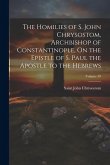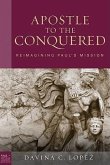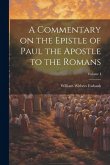Apostle Paul The Book Apostle Paul by Dr. Maxwell Shimba is a profound exploration of one of Christianity's most transformative figures, providing a detailed and insightful look into the life, ministry, and theological contributions of Apostle Paul. Dr. Shimba begins by contextualizing Paul's early life in Tarsus, a bustling Greco-Roman city known for its intellectual and cultural significance. The author paints a vivid picture of how Paul's upbringing in such a multicultural environment, combined with his strict Jewish heritage and training under the renowned Rabbi Gamaliel, uniquely positioned him to bridge the gap between Jewish traditions and the Gentile world. This foundation, Dr. Shimba asserts, was no accident but part of the divine preparation for Paul's later mission. The book moves into a dramatic recounting of Paul's conversion on the road to Damascus, which Dr. Shimba describes as the turning point not only in Paul's life but in the history of the Christian Church. The narrative captures the intensity of the moment when Saul, the zealous persecutor of Christians, became Paul, the ardent apostle of Christ. Dr. Shimba examines the theological implications of this event, emphasizing how it exemplifies the power of divine grace and serves as a model of transformation for all believers. Paul's subsequent years of preparation in Arabia and his return to ministry are analyzed to show how God reshaped him into a vessel for spreading the gospel. One of the book's strengths lies in its exploration of Paul's missionary journeys. Dr. Shimba meticulously chronicles Paul's travels across Asia Minor, Macedonia, Greece, and beyond, demonstrating the apostle's unwavering commitment to spreading the message of Jesus Christ. The challenges Paul faced, including opposition from both Jewish and Roman authorities, natural hardships, and betrayal, are vividly described. Through this narrative, Dr. Shimba underscores Paul's resilience and faith, portraying him as a model of perseverance for modern Christians facing trials in their spiritual journeys. Dr. Shimba devotes significant attention to Paul's writings, which form a cornerstone of Christian theology. By analyzing Paul's epistles, the book sheds light on his teachings about salvation, grace, faith, and the role of the Church. The author highlights how Paul's ability to articulate profound theological truths in a culturally relevant way made him an effective communicator of the gospel. Each epistle is discussed with careful attention to its historical context, audience, and theological significance, showing how Paul addressed the specific needs of early Christian communities while laying down principles that remain timeless. Another key theme in The Book Apostle Paul is Paul's dual identity as a Jew and a Roman citizen. Dr. Shimba explores how this unique status enabled Paul to navigate the complexities of the Roman Empire, defend himself before various authorities, and appeal directly to Caesar. This dual identity, the author argues, was instrumental in advancing Paul's mission and fulfilling God's plan to bring the gospel to the Gentiles. The book also highlights Paul's remarkable adaptability, allowing him to engage with diverse audiences, from philosophers in Athens to prisoners in Rome, with equal conviction and clarity. Dr. Shimba doesn't shy away from discussing the personal struggles and controversies surrounding Paul. From his "thorn in the flesh" to disagreements with other apostles, the book presents Paul as a deeply human figure whose life was marked by both triumph and hardship. Yet, these challenges are framed as integral to Paul's journey and as opportunities for God's power to be revealed. The author encourages readers to see Paul's life as a testament to God's ability to use flawed and broken vessels for His glory.
Hinweis: Dieser Artikel kann nur an eine deutsche Lieferadresse ausgeliefert werden.
Hinweis: Dieser Artikel kann nur an eine deutsche Lieferadresse ausgeliefert werden.








